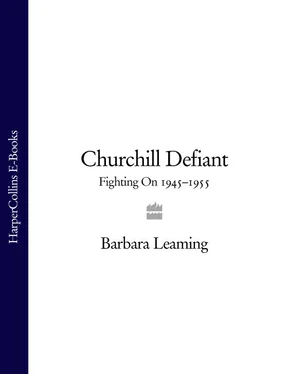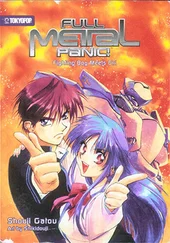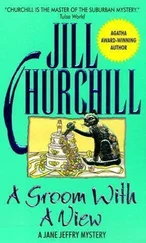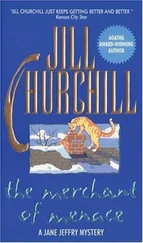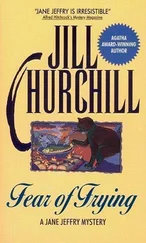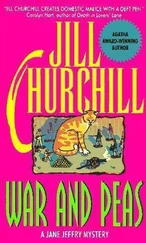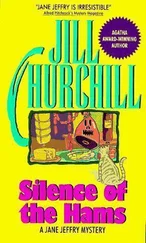As the report was of the highest secrecy, Stimson had shown the single copy personally to each individual on his list, beginning with Truman. There was no question of his leaving the document for Churchill to study later, so it was agreed that he would return to the Prime Minister’s villa in the morning. Churchill reluctantly handed the report back to Stimson. Impatient to resume reading, he found the evening that followed interminable.
It was not until 11 a.m. on Sunday that Stimson reappeared and Churchill at last had a chance to study the report in full. The details of the atomic bomb gripped him: the lightning effect equal to that of seven suns at midday; the vast ball of flame which mushroomed to a height of more than ten thousand feet; the cloud which shot upward with immense power, reaching the substratosphere in about five minutes; the complete devastation that had been wrought within a one-mile radius. Immediately, Churchill saw that this was the card he had been hoping for. The bomb completely altered the balance of power with the Soviets. Stalin’s vast armies were negligible compared to it. Truman no longer had to worry about Stalin’s willingness to fight the Japanese, and Churchill hoped that that would translate into real support for some tough bargaining to get a viable settlement in Europe. He rushed over to see Truman, both to discuss a speedy end to the war in the Pacific and to confirm that the Americans were not intending to share the bomb’s secrets.
Churchill spoke excitedly of the bomb to his physician, Lord Moran, the following morning. He swore the doctor to secrecy and assured him that it had come just in time to save the world. Again, at lunch, he laid out the new situation to Field Marshal Sir Alan Brooke, General Hastings ‘Pug’ Ismay, Eden, and other key members of the British delegation. Referring to the sudden shift in the diplomatic equilibrium, Churchill thrust out his chin and scowled. He spoke of threatening to blot out Russian cities if the Communists refused to behave decently in Europe. But for all his talk of bullying Stalin with the bomb, Churchill’s aim was not to start another war. As he had told Eden early on, he believed that the right bargaining counter might make it possible to secure a ‘peaceful agreement’. He calculated that Stalin did not want war any more than he did, only the fruits of war, which the Soviets felt they had earned by their signal contribution to the defeat of Hitler. If Stalin could not be persuaded to settle, it might be best, as Churchill had previously told Truman, at least to know where they stood with him – and to know it sooner rather than later.
Churchill’s optimism about what he would be able to achieve with both his fellow leaders provoked intensely sceptical reactions from British colleagues. There was sentiment in the British camp that Truman (who controlled the bomb, after all) would never provide the backing Churchill needed, that Stalin would simply shrug off any real or implied threat, and that the details in the report from New Mexico might yet prove to have been exaggerated. Still, Churchill had found reason to hope, and to him that was all that mattered. On Monday night he called Lord Beaverbrook, who had had a hand in shaping the Conservatives’ electoral strategy, for the most up-to-date predictions. Churchill had come to Potsdam empty-handed; now that he had what he believed was the basis of a real negotiation, nothing must be allowed to interfere. Beaverbrook told his friend that the Conservatives were expected to win, though perhaps by a smaller majority than first predicted.
Having proposed at the outset that the leaders take their time moving towards the most difficult questions, Churchill was ready to step up the pace and intensity of the talks. But the moment was still not right for what he saw as the climactic confrontation about Soviet intentions in postwar Europe. That, he believed, must wait until the British election results were known and the people had affirmed their confidence in him. Fresh from having submitted himself to their judgement, he would be in an optimal position to demand free elections in the territories liberated by the Russians.
He managed to put off the sharpest exchanges of the conference until Tuesday, 24 July, the eve of his departure. Speaking of reports from Romania and Bulgaria, he charged that an ‘iron curtain’ had descended in those countries. Until this point in the talks Stalin had been inclined to speak in a low, controlled tone of voice, but Churchill had succeeded in arousing his ire, and he shot back, ‘Fairy tales!’ A fierce dispute about the veracity of Churchill’s claims followed. There was a good deal of pique and perspiration on the Soviet side of the large round table, which was covered with a dark red felt cloth and arrayed with offerings of pungent Russian cigar -ettes. Both Molotov and Eden grew indignant on behalf of their respective masters. Eventually Stalin declared that his and Churchill’s views were so far apart that the discussion ought to be broken off –for now.
After everyone rose, Churchill watched anxiously as Truman walked over to Stalin. Churchill and Truman had previously agreed that at the close of that day’s session the President would tell Stalin about the bomb and the plan to use it on the Japanese. (In fact, Stalin’s spies had already notified him of the successful test blast, but neither Churchill nor Truman knew that.) There was high tension as Churchill looked on from a distance of about five yards. He longed to see Stalin’s reaction, but he was also watching Truman. What would the President do if pressed for technical information? Would he agree to a meeting of American and Soviet experts? Truman had said in advance that he would not, but Churchill was aware that there had been no firm promise and that Truman did not yet perceive the Soviet threat as he did. Both participants in the silent scene were acting: in an effort to seem as casual as possible, Truman had left his own interpreter behind and depended on Stalin’s man to translate his remarks, while Stalin made a point of appearing by turns genial and nonchalant.
Later, as the leaders waited for their cars, Churchill found himself beside Truman. He inquired how the conversation had gone. Truman reported that Stalin had not so much as asked a question. Stalin had said only that he was glad to hear the news and that he hoped they would make good use of the new weapon against Japan.
In any event, the information had been conveyed, and every element was finally in place for the dramatic confrontation Churchill expected would occur after a forty-eight-hour intermission. He was in buoyant spirits when he dined with Lord Mountbatten, the Supreme Commander in South-East Asia. Churchill again had much to say about the bomb and his plans for the future, though Mountbatten wondered whether the Prime Minister might not be assuming too much about the election outcome. That Churchill may have had deep doubts of his own is suggested by a disturbing dream he had that night. Six nights after he and Stalin had talked of death and succession, he dreamed that he too had died. He could see his corpse laid out beneath a sheet in an empty room. The face and body were draped, but the feet that stuck out were recognizably his own. On Wednesday morning, as he prepared to attend a final brief meeting with Stalin and Truman, he feared the dream meant that he was finished.
To all outward appearances his confidence had been restored by the time of the ninth plenary session. At a quarter past twelve, when Truman adjourned the meeting until 5 p.m. on Friday, Churchill added crisply that he hoped to be back. His mood on the flight home with his daughter was one of certainty that he would soon return to complete what he had begun. In London, Churchill went to Buckingham Palace to report to the King on the talks thus far and on the changes in the international situation that the bomb had wrought. Before Churchill retired for the evening at the Annexe facing St James’s Park, he was pleased by the political gossip that even Labour headquarters was predicting a Conservative majority. Fittingly, he intended to monitor the figures from the Map Room, where once he had tracked the unfolding of the Allied victory over Hitler. Family members and close friends had been invited to sit with him as numbers streamed in throughout the day on 26 July.
Читать дальше
